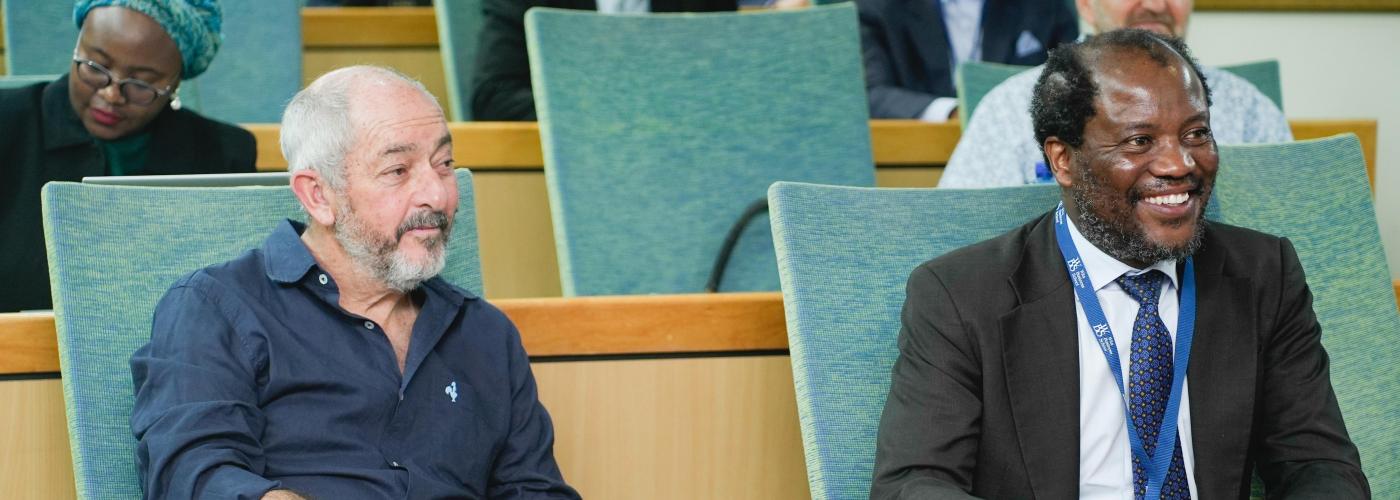
Building a Wits Entrepreneurial Ecosystem
Entrepreneurship is thriving across Wits University: from Tshimologong to Wits Plus, from a burgeoning new campus in downtown Johannesburg to the Wits Innovation Centre, there are many initiatives on the go, creating exciting opportunities for collaboration.
It is against this background that Wits Business School (WBS) hosted, in partnership with the office of the Deputy Vice-Chancellor: Research and Innovation Prof Lynn Morris, the first Wits Entrepreneurship Education Summit on 9 September 2025.
The Summit drew academics and researchers from across the university to share perspectives on building a cohesive entrepreneurial ecosystem at Wits to amplify the impact of the initiatives both within the university and beyond.
Co-founder of Nando’s Mr Robbie Brozin, Wits alumnus and member of the WBS Advisory Board, delivered an inspiring keynote, urging all Wits stakeholders to seize the opportunity to lead the charge in creating a vibrant and economically powerful Johannesburg.
“It is up to us, at Wits, to turn the city around, while keeping human dignity at the centre of whatever we do. We need to stand up and be visible. We have a golden moment right now to get things done, to take action. This summit marks the beginning of real job creation for Johannesburg, real societal impact and we cannot afford to miss the opportunity.”
Prof Morris agreed that an entrepreneurial university means a university with societal impact.
“Entrepreneurship, in the broader sense, means three things: innovation, entrepreneurship itself, and commercialisation. That is why this summit really matters – we need to define the various role players so that Wits can be a catalyst for opportunity in South Africa – a place where talent meets purpose, a place where ideas are transformed into jobs, where innovations solve real-world problems.”
Also speaking at the opening of the summit, Vice-Chancellor Professor Zeblon Vilakazi noted that, while Wits is academically excellent, it is important to translate research into impact.
“Across our faculties, we are seeing positive signs: our scientists are driving enterprises through centres such as the Digital Dome, engineers are partnering with industry, heath scientists are developing innovations in biomedical research, Humanities scholars are experimenting with AI, Commerce, Law and Management scholars are shaping the future of fintech, cyber-security and executive education. Together, we are building the blocks of a truly entrepreneurial university.”


